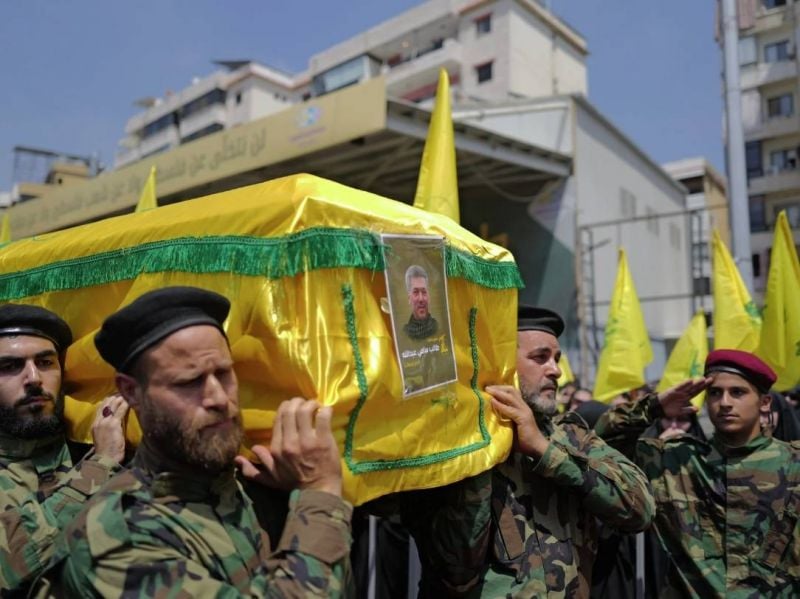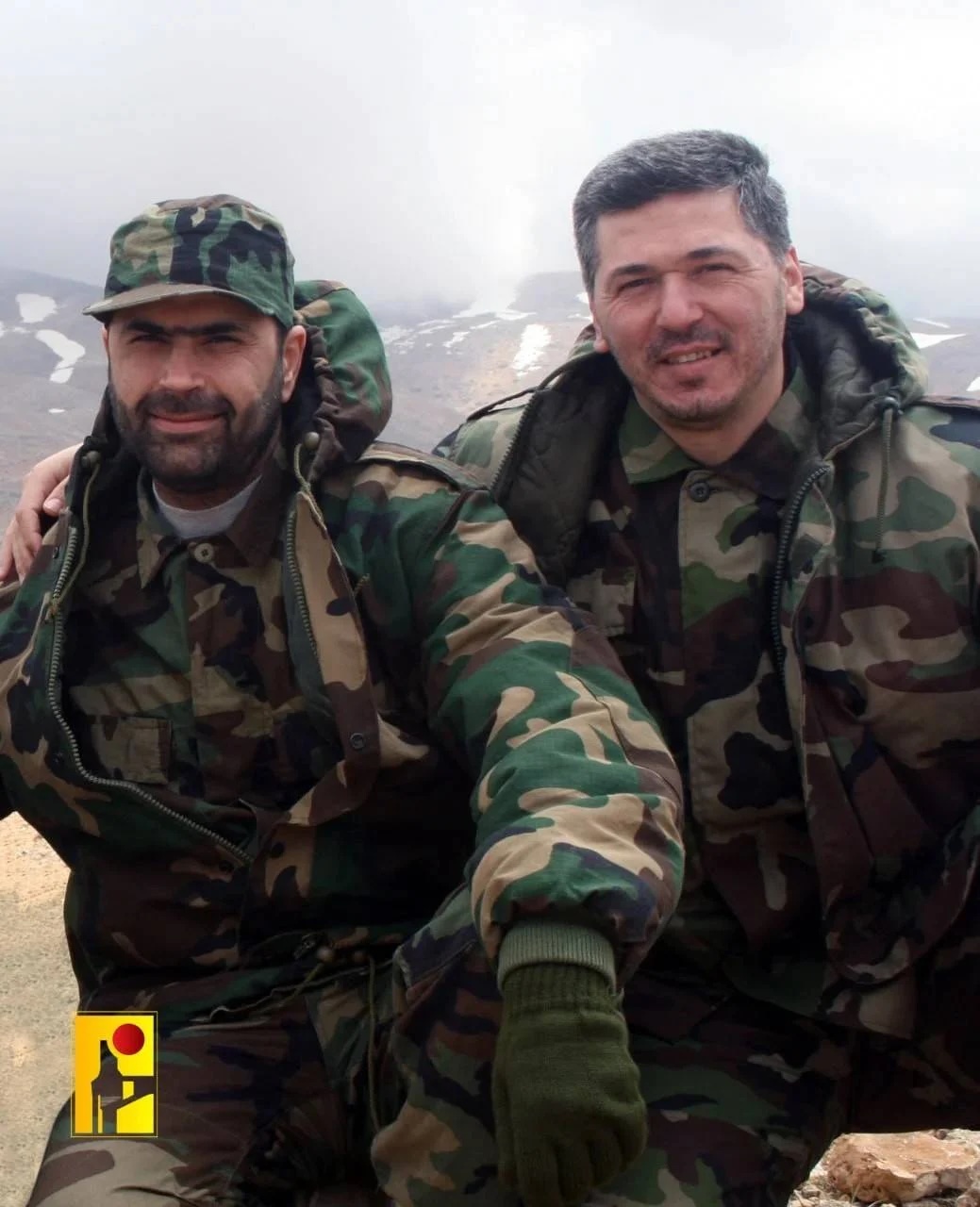
Hundreds of Hezbollah supporters and activists gathered Wednesday afternoon in the southern suburbs of Beirut to attend the funeral of Hezbollah military commander Taleb Abdallah. (Credit: Matthieu Karam/L'Orient-Le Jour)
After Wissam Tawil, Taleb Sami Abdallah. Since the start of the war on Oct. 7, Israel has succeeded in eliminating not only Hezbollah members, whose death toll has so far risen to over 300, but also two of the party's high-ranking military commanders. Abdallah was killed on Tuesday evening in an Israeli airstrike on a building in which he was staying with three other party members, in Jwaya (Sour), some 20 km from the Lebanese-Israeli border. In its announcement of his death, the party presented him as a “fighter, commander and martyr,” alias “Hajj Abou Taleb,” and said that he was born in 1969 in Adchit (South Lebanon).
While the Hezbollah-affiliated channel al-Manar posted a photo of the commander on the social network X alongside Wissam Tawil, alias “Hajj Jawad,” a senior commander of Hezbollah's Radwan Unit assassinated last January in an Israeli strike targeting his car in Kherbet Slim (Bint Jbeil), the Israeli media outlet Haaretz claimed that Abdallah “was Wissam Tawil's superior.”
A Lebanese military source quoted by AFP said that Abdallah was “the most important Hezbollah official to have been killed” since the start of the war on Oct. 8, 2023, in support of the Gaza conflict. The Janoubia website, hostile to Hezbollah, notes that “he was also the direct boss of Hassan Lakkis, another senior military official killed in 2013 by Mossad near his home in the southern suburbs of Beirut.”
Contacted by L'Orient-Le Jour, Ali al-Amine, editor-in-chief of Janoubia, said that Abdallah “was a member of Hezbollah's Military Council.” As a sign of the importance of his rank, a photo in which this high-ranking executive appears alongside the former head of external operations of the Iranian Revolutionary Guards, Qassem Soleimani – who was assassinated by the Americans in Iraq in 2020 – embracing each other with a smile, was circulated in numerous media, including Israeli and Iranian. Commenting on the photo, Amine said that “Abdallah fought in the countries where the Iranian General Soleimani orchestrated military operations, namely Syria, Yemen and Iraq.” “In the latter country, a pro-Iranian battalion immediately reported his death, claiming that he was a comrade of Soleimani,” he noted.
 Taleb Abdallah (R.) with Major Wissam Tawil. (Credit: Hezbollah Media Office)
Taleb Abdallah (R.) with Major Wissam Tawil. (Credit: Hezbollah Media Office)
The opponent of the party reported the words of a Palestinian researcher, Said Ziad, according to whom Hajj Abou Taleb “commanded the Nasr Unit which shares, with the Aziz unit, an area of operations south of the Litani River, and oversees a very important operational zone stretching from Bint Jbeil to the Shebaa Farms, constituting for Hezbollah the primary defense system of southern Lebanon.” “He was thus responsible for the fierce fighting that the Lebanese resistance waged throughout this war (of October 8),” according to Said, who also stated that the slain commander had taken part in the war in Bosnia-Herzegovina (1992-1995), in support of the Muslim population against Serbian troops.
Abdallah “was Hezbollah's commander for the central region of the southern border strip,” reported Reuters, citing security sources. Hamas offered its condolences to Hezbollah for the man who “died in defense, support and heroic participation in the battle of the Palestinian people in al-Aqsa Flood, and after a long life as a jihadist, striking at the Zionist enemy and destroying its strongholds in southern Lebanon and northern occupied Palestine.”
A huge response
A journalist close to Hezbollah told L'Orient-Le Jour on condition of anonymity that Abdallah “was an old hand who never left the battlefield.” “You only have to look at the organization of his funeral on Wednesday to note the important place he occupied on the military level,” they said. Farewells to the leader took place throughout the day at Achoura Square, in the southern suburbs of Beirut, preceding the burial in his home village, Adchit, at 6 p.m.
According to an observer also contacted by L'Orient-Le Jour, Hezbollah's violent response to the assassination of Hajj Abou Taleb is another indicator of “the importance of his leadership status on the battlefield.” During the day on Wednesday, the party fired over a hundred missiles and artillery shells towards northern Israel and the disputed territory of Kfar Shouba, in retaliation for the Israeli aggression that claimed the life of Abdallah in Jwaya.
Hezbollah spokespeople could not be reached to give further information on the commander. Hassan Fadlallah, a party MP, said in a radio interview that “Abu Taleb was always in the front ranks of combat.” “Since his youth, he has never disappointed any front, including the Bint Jbeil axis, during the July war (2006),” he stressed. Fadlallah also spoke of his human side, saying that “he tried to solve people's social problems.”
This article originally appeared in French in L'Orient-Le Jour.
